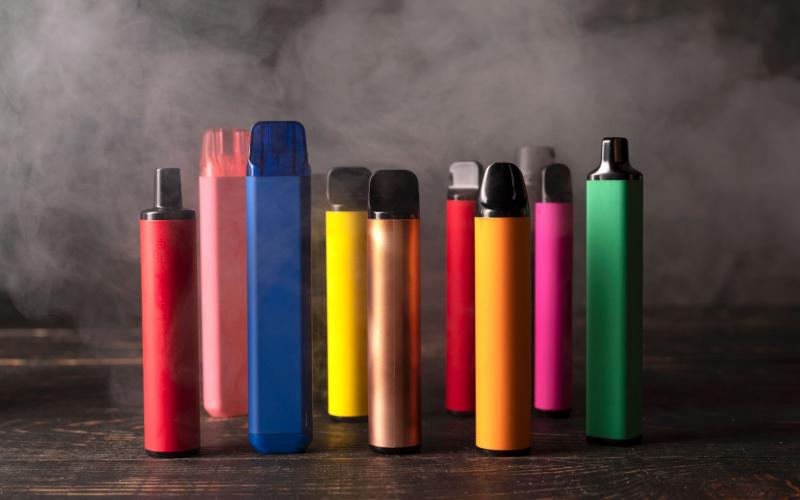Data from the School Health Research Network has shown the rates of vaping in secondary school-aged children increased rapidly between 2019 and 2022, particularly among girls. Public Health Wales (PHW) has established an Incident Response Group (IRG) to address the worrying rise.

Additionally, feedback from parents and headteachers suggests more young people are showing signs of nicotine dependency.
Nicotine addiction in children can affect attention, mood, impulse control, and quality of sleep which impacts education, relationships and lifestyle. PHW is also concerned about the impact of nicotine on brain development.
Illegal vapes, containing high levels of nicotine alongside harmful chemicals and metals such as lead, nickel, and chromium, are readily available on the high street, posing further risk to young people.
In response to this crisis, PHW is working with experts from the Welsh Government, local health boards, NHS paediatric services, and others to create an IRG.
Such IRGs are more commonly used in response to incidents of communicable disease. However, this group will gather evidence to investigate and identify the causes of this vaping spike, with the aim to reduce risk of ongoing harm and provide opportunities to address the problem.
Chair of the IRG and Director of Health Improvement at PHW Dr Julie Bishop said: ‘Vaping has not been around long enough for the risks of long-term use to be fully understood, particularly among young people where there may be greater risks to the developing brain.’
Dr Bishop explained that ‘the establishment of the incident response group will allow PHW to gain an insight into the current extent of this issue, as well as identify opportunities with partners in education, healthcare and Welsh Government to prevent further harms as soon as possible’.
Image credit | Shutterstock





